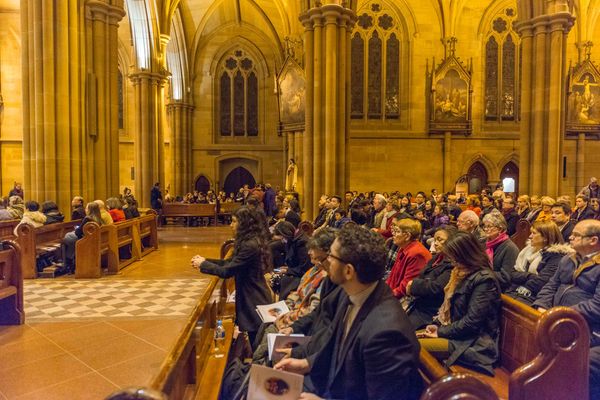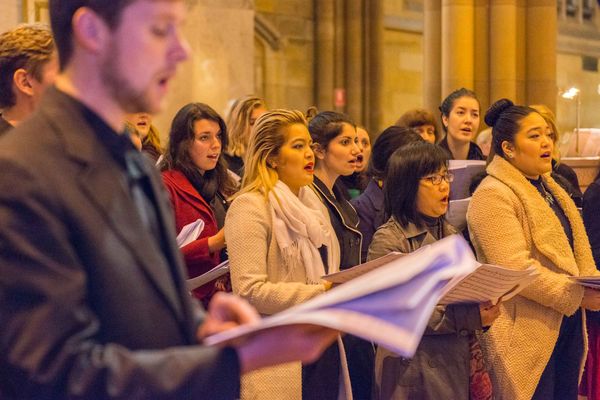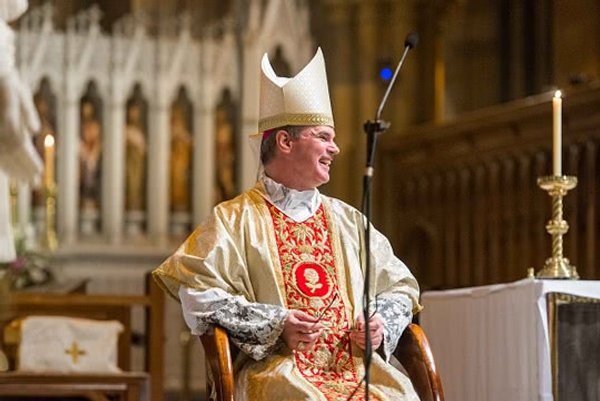Mercy is more than simply being compassionate. Mercy is the overflow of charity, which brings with it also an overflow of justice. Mercy means keeping one’s heart totally alive,… with a love that is strong, self-sacrificing and generous.” (Friends of God: #232)
These words of St Josemaria Escriva from Friends of God make for a helpful connection between his feast day, which we are celebrating, and the current Jubilee Year of Mercy.

St Josemaria located mercy at the very centre of our Christian faith by telling us that mercy cannot be understood outside of the divine love of God. So, there can be nothing optional about mercy for a Christian. Why? Because, as St Josemaria indicates to us, mercy has its origins in the love of God – it is the overflow of charity – and we all know that God is love.
But what exactly is this mercy, which is from God and of God? The first thing to note is that mercy is more than a virtue – a good habit – by which we might regulate our lives. At least, it is more than simply a habit among other habits. The Church gives to it a divine status that tells us something of the very nature of God. Mercy is an attribute of God, which is, as it were, the glue of the communion of the Blessed Trinity. We might talk of other virtues, like courage or modesty, as consequential to the nature of God, but there is nothing consequential about mercy – it is of God.

Of course, this is to see mercy from God’s side of the coin. Mercy from our side does take on virtue-like features, because we are human and the virtues are the particularly human mode of reflecting God in the world. As such, mercy should be an ordinary and mundane dimension of anyone’s daily life – mercy is our bread and butter attribute. Pope Francis has been telling us precisely this incessantly throughout this pontificate.
To be true to our created nature means for us to exercise mercy as the core element of our lives. Not as one thing among many to choose from, but as the key to understanding the image of God that we are. This is why St Josemaria describes mercy as an overflow of charity – it is an overflow of God’s nature into our own. To be merciful is to be human.
The link between mercy and justice is an important one. May I quote Pope Francis here to help us understand St Josemaria’s point that justice is an overflow of mercy and not the other way around. Our Holy Father has said: “God’s justice is his mercy given to everyone as a grace that flows from the death and resurrection of Jesus Christ.” (MV.21) The key image for me here is that of Jesus with the woman caught in adultery. Jesus rightly sees that there is a need for a just outcome of this terrible situation: Go, and sin no more. But his first word, and the meaning of his command is: I do not condemn you. It is mercy that drives the words and deeds of Our Lord.

If I were to put this in my own words, we might say that justice needs to be attentive to the truth of the matter, but it is mercy that is attentive to the truth of the person. To again quote St Josemaria: “Are you worried that your sins are so many that Our Lord will not listen to you? It is not so, because Jesus is full of mercy.” (FOG: #253)
On this feast of St Josemaria Escriva, may we give thanks to God for his extraordinary life in the midst of the ordinary, and may we learn from his words how to follow the Lord along the path of mercy. As the merciful Lord said to the sinful Peter: do not be afraid, follow me.
